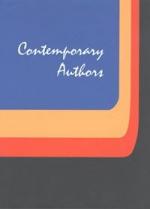|
This section contains 4,720 words (approx. 16 pages at 300 words per page) |

|
SOURCE: Boire, Gary. “The Language of the Law: The Cases of Morley Callaghan.” In Dominant Impressions: Essays on the Canadian Short Story, edited by Gerald Lynch and Angela Arnold Robbeson, pp. 75-86. Ottawa: University of Ottawa Press, 1999.
In the following essay, Boire examines Callaghan's use of the language of the law in his short stories between 1925 and 1928.
This discussion has two discrete, yet intersecting, points of departure. I want to consider, first, Morley Callaghan as an experimental short story writer—more specifically, a postcolonial writer intensely aware of his own resistant activity within a well-established colonialist genre. I want to consider, in other words, Callaghan's radical experimentations with both the language and genre of the short story form. Second, I want to consider how this experimentation intersects with what proved to be Callaghan's lifelong boredom and fascination—his fear and temptation, if you will—with the language of...
|
This section contains 4,720 words (approx. 16 pages at 300 words per page) |

|


